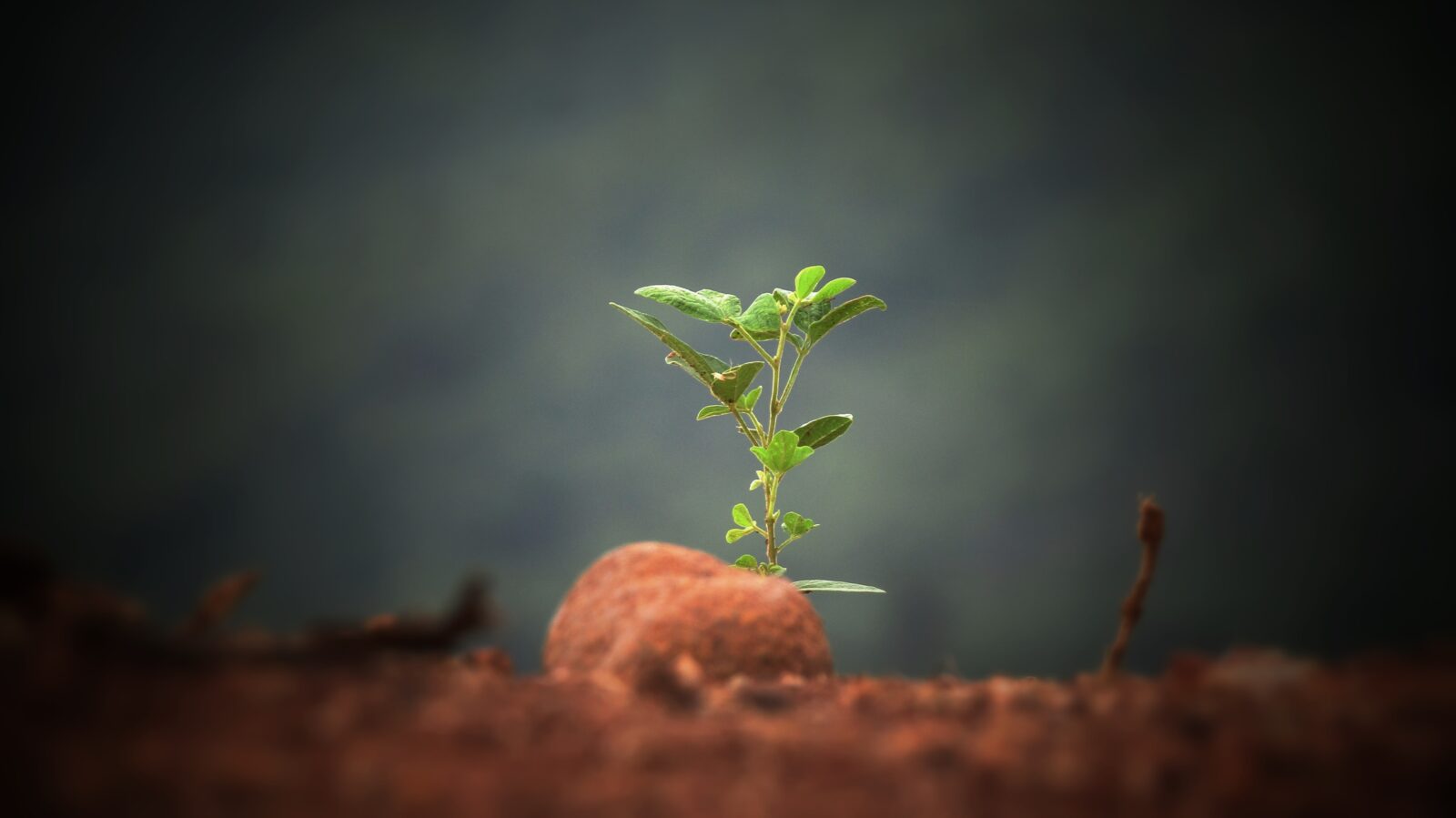This is the third article in a series authored by students at Covenant College alongside Marvin Olasky.
By Lydia Dorman, Elysse Carrillo, Anna MacDonald, and Marvin Olasky
The chorus of a hit song from a century ago dealt with U.S. soldiers returning from World War I in France: “How ya gonna keep ’em down on the farm After they’ve seen Paree’… How ya gonna keep ’em away from harm, that’s a mystery. They’ll never want to see a rake or plow. And who the deuce can parleyvous a cow?”
That’s not a problem for one homeless man, Albert Jonte, whom everyone calls AJ. His issue: How’s he’s gonna get back to the farm, after he’s lived in a homeless camp in Chattanooga? As he crouches down to show a strawberry plant, one of the few plants in his garden to survive the frost, it’s clear that life could still be found in it—and in him.
It’s Sunday afternoon at Chattanooga’s one official, city-sanctioned homeless camp. The camp is on a one-acre lot at the end of Peeples Street, near the railroad tracks. It’s surrounded by a chain link fence topped with barbed wire. On the outside, a large white sign reads “FAMILY” in red letters. Sounds friendly, but a closer look reveals the “family” is the first half of a Family Dollar sign. Inside, rows of different-colored tents squat on pallets.
AJ has brown hair and a reddish-brown beard. He wears brown work boots, black pants, and a black Patagonia fleece over a bright orange t-shirt. He’s been in the camp since June, after Anne Marie, one of the camp managers, practically begged him to come. He’s 21 years old and has been homeless for the last three years, but he doesn’t like to accept help. Born into a family of farmers, he was raised to work hard and fend for himself.
In one corner of the lot lies a garden enclosed by chicken wire, with a bamboo gateway. Rows of wooden raised beds and tires painted a variety of colors are where AJ has been growing vegetables. That’s his way of honoring his heritage. He hopes his dad, who died last year at age 63, would be proud of him. Once his dad sold produce at the Peeples Street farmers market. Now the street displays worn buildings and dilapidated parking lots.
In the camp, several people are cleaning up from a storm that hit three days earlier, and from a fire that burned two tents the previous week. Across the street, a woman dances on top of a dumpster. Meanwhile, AJ sits down on the edge of a raised bed in the garden and speaks of his father, a coal miner who suffered from black lung disease and eventually dying of a heart attack. He was the glue that held their family together, and he worked a variety of jobs throughout his life in order to keep his family fed. His real passion, though, was farming, and he passed that passion on to AJ.
It’s difficult, though, for farmers to compete with larger produce companies that import from other countries, and it has been hard on AJ’s family. But now, his garden has made a way for him to carry on his family’s 150-year agricultural heritage and to serve others through it. AJ is now a member of the City Farms Growers Coalition of Chattanooga, a partnership that equips low-income areas with supplies to grow their own produce.
Each Wednesday afternoon Christina Gibson, a professor at the University of Tennessee at Chattanooga, brings eight students to the camp garden: AJ helps teach their class on urban farming. He plans to develop the garden further, to plant flowers as well as vegetables, and to put in a brick memorial walkway. The first brick will be in honor of this father. Through his garden, AJ honors his agricultural roots, brings life and beauty out of a harsh reality, and shares his knowledge with others.
After three years of homelessness, this may be his way out. With a glance towards the sky, AJ muses, “I wonder if Dad would be proud of me.”

